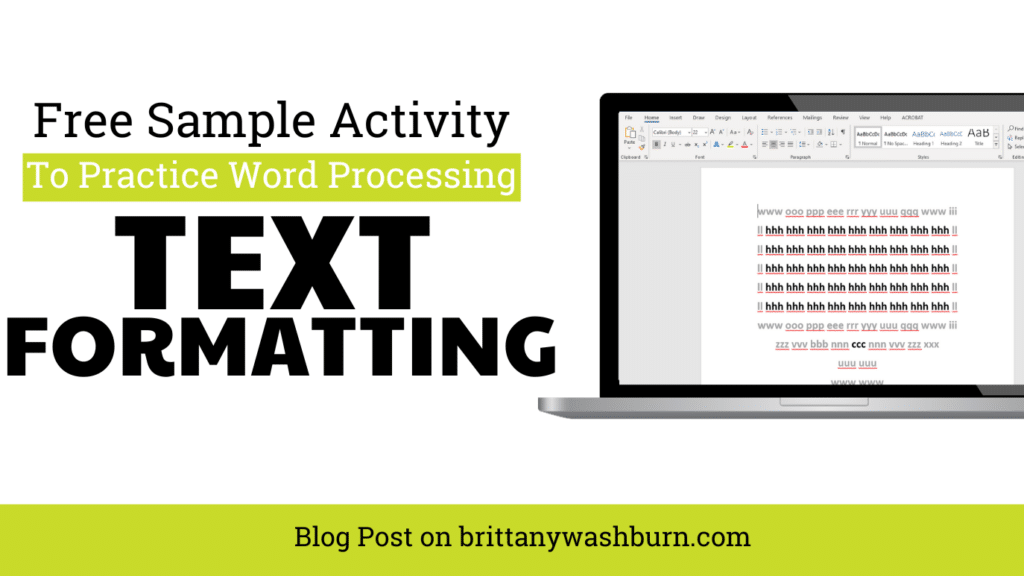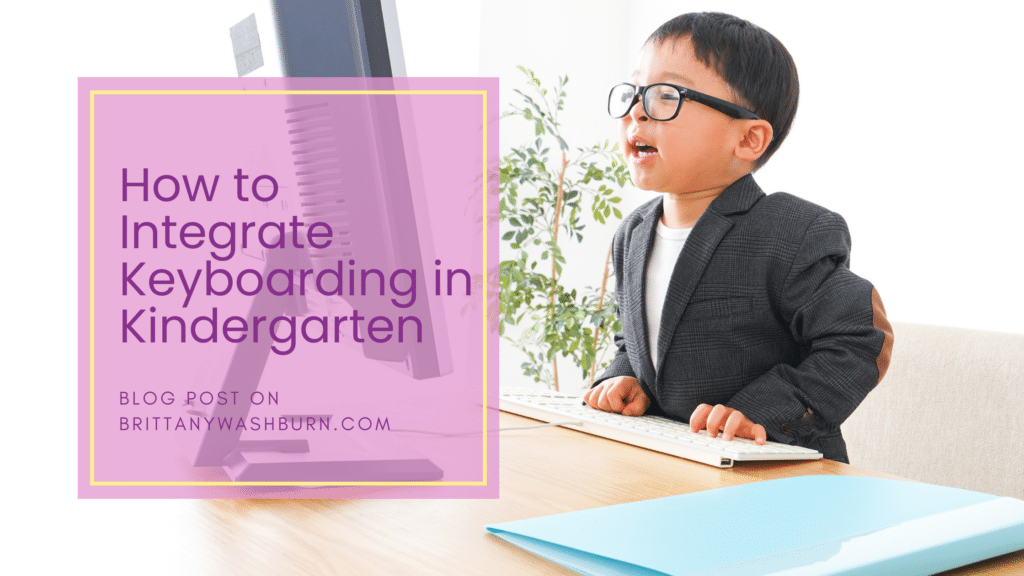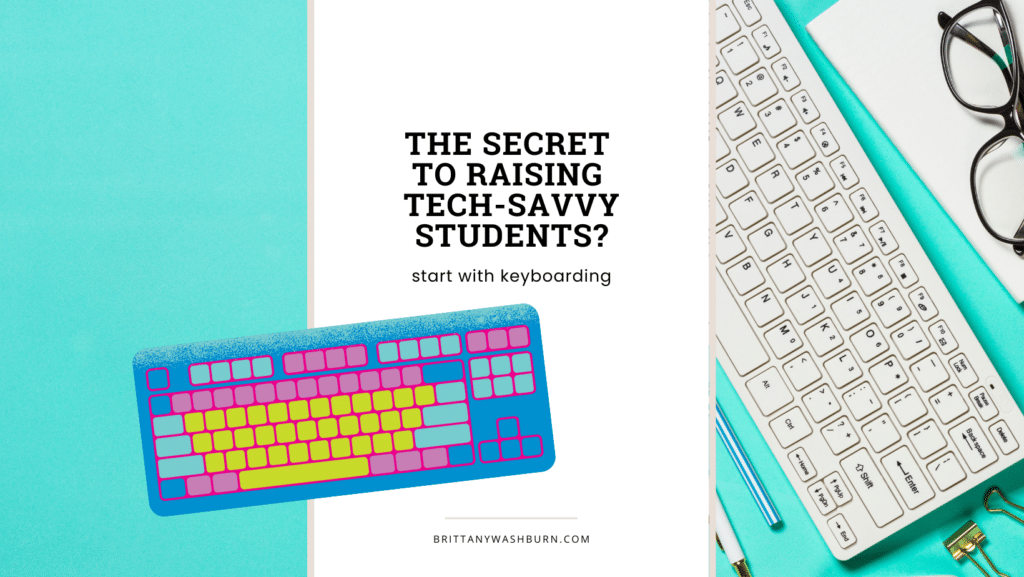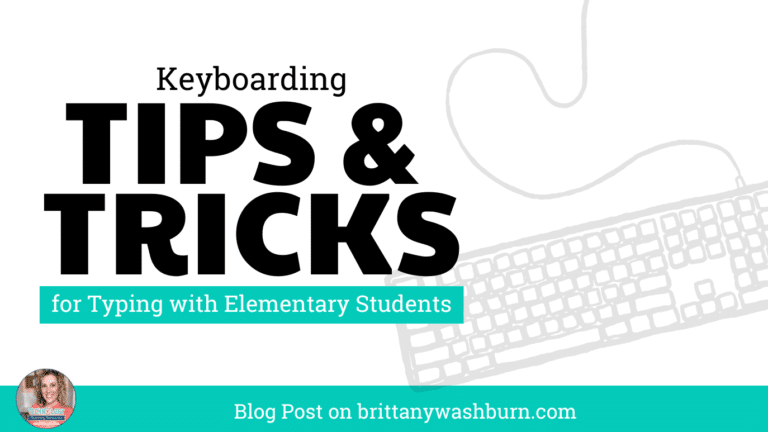Why Do Elementary Students Need to Learn Computer Keyboarding?

Keyboarding skills are essential for success in both academic and professional settings. Elementary students may seem too young to learn keyboarding, but introducing them to this skill early can have a significant impact on their long-term success. Not only does keyboarding proficiency enhance writing skills, but it also improves speed and accuracy, which are highly valued in the digital age. In this article, we will explore why elementary students need to learn computer keyboarding and the benefits it provides for their future academic and professional careers.
Introduction: The Importance of Keyboarding Skills for Elementary Students
In today’s digital age, keyboarding skills have become essential for success in academics, work, and everyday life. Even elementary students are required to use technology for learning and communication, making it crucial for them to develop keyboarding proficiency. This article explores the reasons why keyboarding is a critical foundational skill for young learners, and how it can improve their writing skills and overall academic performance.
Why Keyboarding is a Foundational Skill for Young Learners
Keyboarding is a fundamental skill that helps students communicate their ideas and thoughts effectively. With the rise of technology and the increasing use of computers and mobile devices for education, it’s important for students to learn how to type with speed and accuracy. By mastering keyboarding, students gain greater control over their digital communication and can more easily express their ideas in writing.
Keyboarding Proficiency: A Key to Success in the Digital Age
The Changing Landscape of Technology and Its Impact on Education
Technology has revolutionized the way students learn and interact with the world around them. As technology continues to evolve, so too does the need for students to develop keyboarding proficiency. From online research papers to email correspondence, keyboarding is an essential skill for students at all levels of education.
Why Learning Keyboarding at a Young Age is Critical
Research has shown that developing keyboarding proficiency at a young age leads to better typing speed and accuracy in adulthood. In addition, children who learn how to use a keyboard at an early age become more comfortable with technology and are more likely to embrace new digital tools throughout their lives.
Enhancing Writing Skills: How Keyboarding Can Improve Student Performance
The Connection Between Keyboarding and Writing Fluency
Keyboarding proficiency is also linked to improved writing skills. By allowing students to type at a faster pace, keyboarding helps students write fluently and express their thoughts more easily. This fluency translates to a greater level of comfort and confidence with writing assignments, leading to better grades and higher performance.
Research on Keyboarding and Writing Performance in Elementary School
Studies have shown that elementary students who have received formal keyboarding instruction exhibited improved writing speed, length, and quality of written assignments. These findings suggest the value of integrating keyboarding instruction into elementary school curricula to enhance writing skills.
Speed and Accuracy: The Benefits of Early Keyboarding Training
How Early Keyboarding Training Can Improve Speed and Accuracy
Early keyboarding training helps students develop essential motor skills and hand-eye coordination at an early age, leading to greater speed and accuracy in typing. This skillset can benefit students throughout their academic and professional careers, making early keyboarding training a valuable investment.
The Importance of Ergonomics and Technique for Long-Term Success
To achieve long-term success in keyboarding, it’s important to prioritize proper ergonomics and technique. By sitting correctly and using proper finger placement, students can prevent repetitive strain injuries and improve their typing speed and accuracy over time. By developing these habits early on, students can prevent the development of bad keyboarding habits that can be difficult to break.
Developing Good Habits: Teaching Keyboarding as Part of Digital Citizenship
The Importance of Digital Citizenship for Elementary Students
Digital citizenship is an essential skill that every student needs to learn, especially in today’s technologically advanced world. This includes learning keyboarding skills, which are fundamental to digital literacy. The earlier students develop these skills, the better they will be at communicating and sharing information in the digital environment.
Teaching Keyboarding Within the Context of Safe and Responsible Technology Use
Teaching keyboarding skills doesn’t just involve typing fast and accurately; it also involves teaching students how to use technology safely, responsibly, and ethically. In the classroom, students must learn how to protect their personal information, avoid cyberbullying, and respect intellectual property. Keyboarding skills should be taught alongside digital citizenship skills, as they go hand in hand.
Addressing Common Challenges: Strategies for Teaching Keyboarding to Young Students
Common Challenges Faced by Teachers When Teaching Keyboarding to Elementary Students
Teaching keyboarding skills to young students is not without its challenges. For example, students may find it challenging to maintain proper posture, hand placement, and finger placement while typing. They may also struggle with typing accuracy and speed.
Effective Strategies for Helping Young Students Learn Keyboarding
To overcome these challenges, teachers can use strategies such as games, songs, and timed typing exercises that make learning fun and engaging. They can also use tools such as online typing tutorials, software, and keyboarding games that offer immediate feedback and progress tracking. Teachers should also provide regular practice opportunities to help students develop muscle memory and familiarity with the keyboard.
Integrating Keyboarding Into the Curriculum: Practical Tips for Teachers
Ways to Incorporate Keyboarding Skills Across the Curriculum
As keyboarding is a foundational skill, it can be integrated into multiple subject areas. For example, students can practice typing skills while taking notes in social studies, writing essays in language arts, or conducting research in science. Teachers can also assign independent typing projects or collaborative typing activities to practice teamwork and communication skills.
Tools and Resources for Teaching Keyboarding Effectively
There are several free online resources and tools available to teachers, such as typing practice websites, typing games, and typing software. Teachers can also use guided lessons and tutorials to teach proper keyboarding techniques, and encourage students to use keyboarding apps and tools at home.
Conclusion: Keyboarding as a Foundational Skill for Lifelong Learning and Success
The Long-Term Benefits of Early Keyboarding Instruction
Teaching keyboarding skills to elementary students has long-term benefits. Good keyboarding habits developed early can lead to increased typing speed and accuracy, improving students’ efficiency in completing assignments and projects. These skills can also enhance their ability to communicate and collaborate with others online, improving their performance in the classroom and beyond.
Why Elementary Students Need to Learn Keyboarding for Success in School and Beyond
In today’s digital age, keyboarding skills are essential for success in school and beyond. By teaching keyboarding skills early on, students are better equipped to tackle digital communication, research, and academic tasks efficiently, and effectively. Ultimately, keyboarding skills are a fundamental component of digital literacy, which is a vital skill for success in the 21st century.
In conclusion, keyboarding is a foundational skill that elementary students need to learn to thrive in the digital age. By improving writing skills, increasing speed and accuracy, and instilling good habits, keyboarding can have a long-term impact on their success in school and beyond. Teachers and parents can work together to introduce and reinforce keyboarding skills to ensure that children are well-equipped to navigate the ever-changing technological landscape. By prioritizing keyboarding education for young learners, we are setting them up for success in the digital future.

FAQs
Why is it important for elementary students to learn keyboarding?
Keyboarding is a fundamental skill that is necessary for academic and professional success in today’s digital age. It enhances writing skills, increases speed and accuracy, and instills good habits that are essential for long-term success.
At what age should students start learning keyboarding?
Keyboarding can be introduced as early as kindergarten or first grade, depending on the school or district’s curriculum. However, it is recommended that students begin formal keyboarding instruction by third grade to ensure that they have a solid foundation before moving on to more advanced skills.
What are some common challenges teachers face when teaching keyboarding to young students?
Some common challenges include keeping students engaged and motivated, ensuring that they are using proper technique and ergonomics, and finding ways to integrate keyboarding into the curriculum seamlessly.
What resources are available to help teachers and students learn keyboarding?
There are many online resources and software programs available, such as TypingClub, NitroType, and Dance Mat Typing, that offer engaging and interactive keyboarding lessons. Many of these resources are also free or low-cost, making them accessible to schools and families on a tight budget. Additionally, professional development opportunities for teachers are available to improve their skills and knowledge of teaching keyboarding to young students.

Read some other blog posts from the typing category:
Text Formatting Freebie
Text formatting is a great way to help students master word processing. Featuring two technology…
The Importance of Keyboarding in Kindergarten
As the world becomes increasingly digital, it’s essential to equip our youngest learners with the…
Why Do Elementary Students Need to Learn Computer Keyboarding?
Keyboarding skills are essential for success in both academic and professional settings. Elementary students may…
How to Manage a Typing Competition in the Computer Lab
In order to assist students in developing their keyboarding skills, elementary typing competitions are gaining…
How to Integrate Keyboarding Lessons into your Curriculum
As educators, it is important to recognize the importance of keyboarding skills and integrate them…
The Secret to Raising Tech-Savvy Students? Start with Keyboarding!
Computer Keyboarding has become a fundamental skill for students to have. It is an essential…











